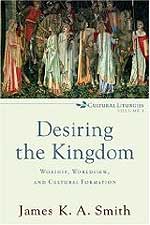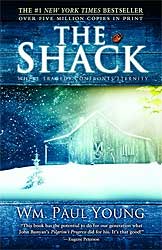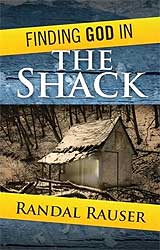There was a fascinating conference sponsored by the University of Notre Dame Center for Philosophy of Religion at the beginning of September. The title of the conference was, “My Ways Are Not Your Ways: The Character of the God of the Hebrew Bible.”
The conference examined the troubling portrayals of God in the Hebrew Bible — something which I am very interested in since that will be the focus of one of my courses I am teaching next semester. Here is the write up for the conference:
Adherents of the Abrahamic religious traditions contend that human beings are made in the image of God and that modeling the character of God in one’s life represents the pinnacle of human flourishing and moral perfection. Defenders of this tradition commonly point to passages in the canonical texts of the Jewish and Christian faiths that portray God as loving, merciful, patient, etc. in support of such a position. Since the seventeenth century, however, numerous critics of these Abrahamic traditions have argued that God, especially in the Hebrew Bible, is often portrayed as anything but a moral role model. On the one hand, historical narratives in these texts describe God apparently committing, ordering, or commending genocide, slavery, and rape among other moral atrocities. On the other hand, a number of commands purportedly issued by God seem to commend bigotry, misogyny, and homophobia. In recent days, similar criticisms of the Abrahamic traditions have been raised by philosophers (Daniel Dennett), scientists (Richard Dawkins and Sam Harris), social commentators (Christopher Hitchens), and others.
Are these apparent commendations and commands of the Hebrew Bible consistent with the claim that the Abrahamic God is perfectly good and loving? Those defending this tradition have two avenues of response open to them. The first response would be to argue that the aforementioned troubling narratives or commands should simply be rejected. Those taking this approach would have to explain how they think such passages could be rejected without placing in peril the Abrahamic religions, which have traditionally claimed that the Hebrew Bible is, represents, or contains the inspired word of God. The second response would offer explanations aiming to show that the apparently untoward consequences can be avoided without rejecting the narratives or commands. Those taking this approach must explain either why the untoward consequences do not follow, or why they are not, in the end untoward.
However, while defenders of this tradition have both routes available to them, few of these defenders seem to have taken the challenge to heart. Despite these recent, forthright criticisms, only a handful of theologians or philosophers in these traditions have sought to respond to the criticisms.
The present conference aims to remedy this deficiency, taking as its focus the charge that the Abrahamic tradition should be rejected because of its foundation in the Hebrew Bible, which portrays God as immoral and vicious. The presenters and commentators include philosophers—both theistic and nontheistic—as well as Biblical scholars.
The conference had an impressive list of speakers, including Christopher Seitz, Nicholas Wolterstorff, James L. Crenshaw, among others. And if you were not able to attend the conference (as I), we can still enjoy the papers and interaction via the web!
Here is the program with links to the videos:
Thursday, September 10, 2009:
- Mike Rea: Welcome and Introduction
- Louise Antony: Does God Love Us?
Friday, September 11, 2009:
- Edwin Curley: The God of Abraham, Isaac, and Jacob
- Evan Fales: Satanic Verses: Moral Chaos in Holy Writ
- John Hare: Animal Sacrifices
- Mark C. Murphy: God Beyond Justice
- Eleonore Stump: The Problem of Evil and the History of Peoples: Think Amalek
Saturday, September 12, 2009:
- Richard Swinburne: What does the Old Testament Mean?
- Nicholas Wolterstorff: Reading Joshua
- Gary Anderson: What about the Canaanites?
- Christopher Seitz: Canon and Conquest: The Character of the God of the Hebrew Bible
- Concluding Remarks: Howard Wettstein
- Panel Discussion: Gary Anderson, Paul Draper, Daniel Howard-Snyder
I encourage you to check out the papers!

 In the second sermon I painted a profile of what I believe are some important characteristics of an “intellectually mature believer.” First and foremost, I underscored the importance of “epistemic humility” based on our fallenness, fallibility and finitude. The second characteristic was openness. More particularly, I emphasized the importance of openness to God and Scripture, openness to all truth (no matter where it may be found), and a genuine openness to others. By openness I do not mean a wishy-washy relativism, but something called “critical commitment” where you know what you believe and why and hold it with faith, moral courage, and epistemic humility. My final characteristic of an intellectually mature believer was that he or she should have as a goal integration. Here I was arguing for a somewhat unified/integrated Christian perspective on the world and our faith (I consider the modifier “somewhat” very important). This “unified view” is often referred to as a “worldview” or “world and life view.” While there are a number of limitations to the concept of a worldview (especially the notion that there is such an animal as “the Christian worldview” or that worldviews are somehow impervious to culture rather than embedded in culture), I still find it a helpful concept for thinking about thinking.
In the second sermon I painted a profile of what I believe are some important characteristics of an “intellectually mature believer.” First and foremost, I underscored the importance of “epistemic humility” based on our fallenness, fallibility and finitude. The second characteristic was openness. More particularly, I emphasized the importance of openness to God and Scripture, openness to all truth (no matter where it may be found), and a genuine openness to others. By openness I do not mean a wishy-washy relativism, but something called “critical commitment” where you know what you believe and why and hold it with faith, moral courage, and epistemic humility. My final characteristic of an intellectually mature believer was that he or she should have as a goal integration. Here I was arguing for a somewhat unified/integrated Christian perspective on the world and our faith (I consider the modifier “somewhat” very important). This “unified view” is often referred to as a “worldview” or “world and life view.” While there are a number of limitations to the concept of a worldview (especially the notion that there is such an animal as “the Christian worldview” or that worldviews are somehow impervious to culture rather than embedded in culture), I still find it a helpful concept for thinking about thinking. If you haven’t heard of the popular novel The Shack (Buy from
If you haven’t heard of the popular novel The Shack (Buy from  This is exactly what my colleague and friend, Randal Rauser has written with his just published volume, Finding God in The Shack (Paternoster, 2009; Buy from
This is exactly what my colleague and friend, Randal Rauser has written with his just published volume, Finding God in The Shack (Paternoster, 2009; Buy from  The moderators would like to announce the release of a new biblical studies email list, The Biblicalist
The moderators would like to announce the release of a new biblical studies email list, The Biblicalist